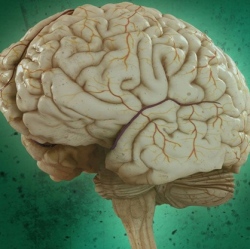
Scientists from the University of Leeds have found that the protein called prion helps our brains to absorb zinc, which is believed to be crucial to our ability to learn and the well-being of our memory.
The findings published on Tuesday 16 October in Nature Communications (open access) show that prion protein regulates the amount of zinc in the brain by helping cells absorb it through channels in the cell surface.
However, high levels of zinc between brain cells have been linked with diseases such as Alzheimer’s and Parkinson’s.
Professor Nigel Hooper from the University’s Faculty of Biological Sciences explains: “With aging, the level of prion protein in our brains falls and less zinc is absorbed by brain cells, which could explain why our memory and learning capabilities change as we get older. By studying both their roles in the body, we hope to uncover exactly how prion and zinc affect memory and learning. This could help us better understand how to maintain healthy brain cells and limit the effects of aging on the brain.”
While the abnormal infectious form of prion — which causes Creutzfeldt-Jakob disease (CJD) in humans and bovine spongiform encephalopathy (BSE) in cattle — has been extensively studied, the Leeds team is among the first to investigate the role of the “normal” form of the protein (PrPC).
Lead researcher, Dr Nicole Watts, says: “Zinc is thought to aid signalling in the brain as it’s released into the space between brain cells. However, when there’s too much zinc between the brain cells it can become toxic. High levels of zinc in this area between the brain cells are known to be a factor in neurodegenerative diseases, so regulating the amount of absorption by the cells is crucial.”
Prion diseases such as Creutzfeldt–Jakob disease (CJD) in humans are characterized by the conformational conversion of the cellular prion protein (PrPC) into the infectious form (PrPSc) that aggregates in the brain. Zinc uptake is disrupted when PrPC is mutated or when cells are infected with prion, which suggests that the reduction in uptake of zinc contributes to the neurodegeneration that is commonly associated with prion diseases.
